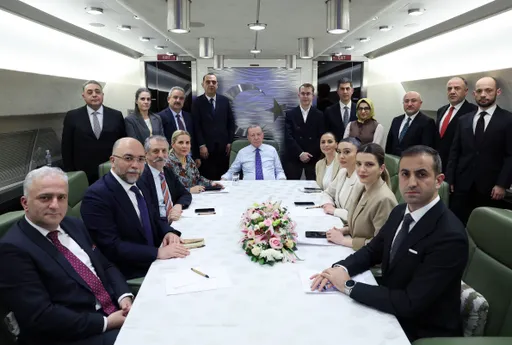Israel’s operation targeting alleged Hezbollah ‘terror’ tunnels in Israeli territory has once again raised the seemingly perennial issue of a third Lebanon war.
The Israeli operation, the complexities of Syria, increased potential of destabilising financial measures targeting Hezbollah, amongst a host other domestic and international political issues, have arguably raised the political temperature to its highest sustained levels the since the 2006 war.
The prospect of war seems to have become an almost metaphysical truism continually hanging over the scenic landscape in this small corner of the eastern Mediterranean.
While flare-ups have occurred sporadically since the end of the so-called ‘July War’ in 2006—most notably in Syria where Israel has on several occasions targeted Hezbollah and Iranian interest—since the passing of UN resolution 1701, which established the parameters of the cease-fire between the two sides, all parties have avoided any action that would push things over the brink.
Several interrelated factors can explain this relative peace. Firstly, Israel is well aware that the costs, both material and human, that it would incur in any future conflict with Hezbollah would be much more significant than in 2006. Then, an Israeli bombing and subsequent ground campaign that followed on the heels of a Hezbollah cross-border raid in which three Israeli soldiers were killed, two captured and resulted in 34 days of fighting and the deaths of at least 39 Israeli civilians and 119 soldiers.
Although media reports at the time indicated overall damages of $3 billion (USD), Israel’s infrastructure remained mostly untouched. Lebanon and its people, of course, paid a much higher price.
In any new war, Israel would undoubtedly face strikes against its critical infrastructure including power plants and even Tel Aviv’s Ben Gurion Airport.
In the ten years since the July war, Hezbollah has reportedly acquired over 100,000 rockets and missiles with the ability to fire over 1,000 per day and with a range that can target every major city in Israel.
Furthermore, multiple reports have emerged in the last few years of Hezbollah manufacturing its own weapons systems in Lebanon, including drones and guided missile systems. Foreign intelligence assessments have concluded that the Hezbollah’s arsenal includes Iranian-made Fateh-110 missiles, scud missiles and guided surface to air missiles.
Furthermore, despite Israeli strikes against the Syrian regime and Iranian and Hezbollah-affiliated facilities in Syria, Hezbollah’s leader appeared in September on Lebanese television to announce that “no matter what you do to cut the route, the matter is over and the resistance possesses precision and non-precision rockets and weapons capabilities.”
Another factor that will assist in maintaining the status quo is the domestic political scene in Lebanon itself.
After the 2018 parliamentary elections strengthened the party’s hand, Hezbollah has become even more focused on consolidating their power at home, rather than focusing on their enemy in the south.
This is evident from the recent election campaign in Lebanon, in which the Hezbollah-led electoral alliance campaigned under the slogan of ‘build’ and ‘protect’. Furthermore, although the party remains popular with its core supporters, there have been instances of opposition from within the Lebanese Shia community. The elections showed a growing dissatisfaction with Hezbollah’s politics, particularly its intervention in Syria, which has reportedly cost the lives of at least 2,000 of its fighters.
In the current political climate, it is unlikely that Hezbollah would want to risk not only more casualties among its fighters but also the massive costs that would undoubtedly incur regarding the civilian casualties and the destruction of critical infrastructure in Lebanon.
Following the end of the 2006 war, Hezbollah Secretary General Hasan Nasrallah said that had he known that Israel would respond so heavily, he would not have ordered the capture of the Israeli soldiers. He would go on to claim that Israel had already planned to go to war later in the year, a claim not out of the realm of possibility. However, it was clear that Hezbollah miscalculated, something they are unlikely to repeat.
The Syria Factor
There are of course some factors that could disrupt this relative peace, not least of which is the ongoing conflict in Syria. Events over the last year seem to indicate the possibility that hostilities between Hezbollah and Israel could break out in Syria, leading to a potentially dangerous, direct, confrontation between Israel and Iran, something neither party wants, despite the rhetoric.
The consolidation of the Iranian and Hezbollah positions in Syria and the recent declaration of Hezbollah’s intention to stay in Syria have only made this more likely. However, Russia’s promise to deliver its state-of-the-art S-300 air defence system to Syria following an Israeli air raid that led to the downing of a Russian reconnaissance plane has arguably shifted the balance of power between Israel and Hezbollah in Syria.
The Russian move potentially inhibits Israel’s ability to strike Hezbollah facilities in Syria and, ipso-facto, its ability to stop the transfer of weapons to Lebanon. The increased anxiety this is likely to cause among Israeli decision-makers may amplify the voices within Israel calling for confrontation with Hezbollah in Lebanon.
The Saudi-Iran Factor
Another wildcard is the ongoing regional struggle between Iran and Saudi Arabia.
Under the leadership of Crown Prince Mohamed bin Salman (MBS), the Saudis have made clear their intolerance of Iran’s (and therefore Hezbollah’s) regional meddling. In Lebanon’s case, as was demonstrated by the November 2017 Hariri debacle in which the Lebanese Prime Minister was, by many accounts, forced to resign at the behest of MBS, the Saudis are willing to sacrifice Lebanon in pursuit of their strategic objectives.
The strategic alignment between Saudi Arabia and Israel vis-a-vis Iran and Hezbollah combined with the increasing brashness and unpredictability of Saudi actions in the region, may, in the end, prove dangerous to the Lebanese.
While it is likely that the current relative peace between Israel and Lebanon will remain, miscalculations, such as those that happened in 2006, are a distinct possibility.
The wild cards of Syria and the Saudi-Iran rivalry could also upset this fragile balance. And while today’s Israeli operation is unlikely to upset the balance, a misstep by either side could lead to war. The difference this time around is that the stakes, both locally and globally, are significantly higher.























